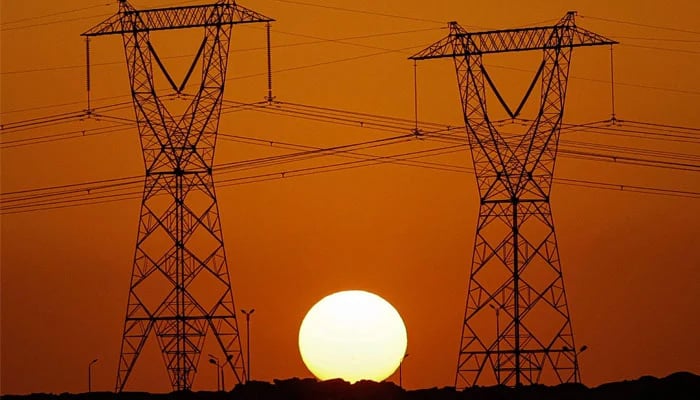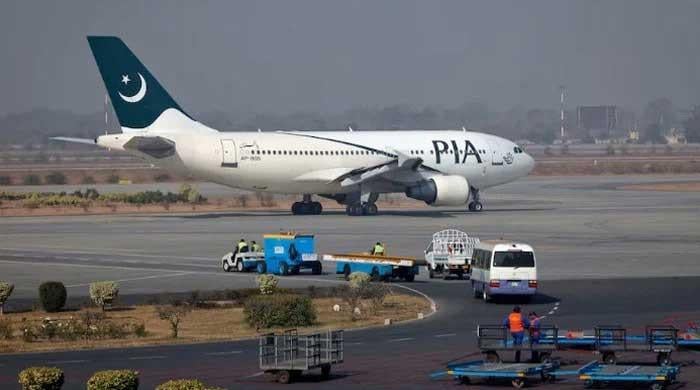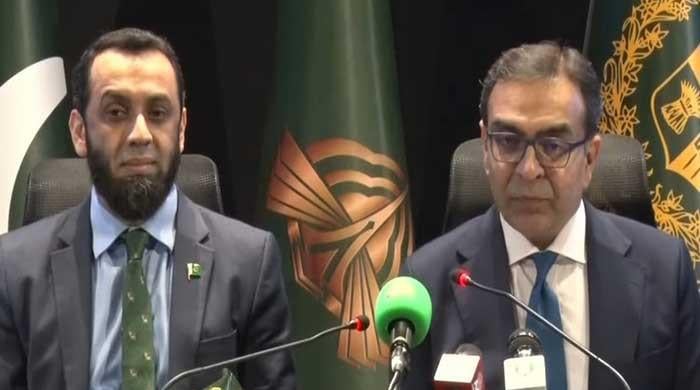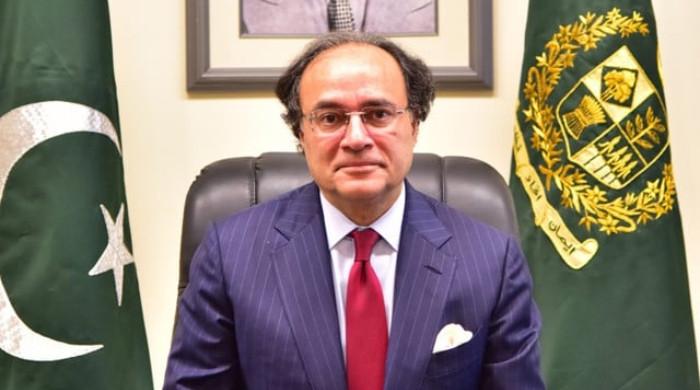Pakistan engages Chinese IPPs in debt reprofiling talks to buy more time
Electricity generation cost will reduce to Rs8 from Rs24 per unit by using local coal, says power minister
July 28, 2024

Pakistan has initiated talks on reprofiling its power sector debt to China, alongside talks on structural reforms suggested by the International Monetary Fund (IMF), Finance Minister Muhammad Aurangzeb told a press conference on Sunday.
Aurangzeb said that Pakistan would address the reprofiling of Chinese credit to the power sector on a project-by-project basis and that Islamabad is looking to appoint a local adviser in China for the purpose.
The finance minister stressed that "it is reprofiling and not restructuring of debt because there is no question of cutting the amount it owes". Reprofiling is generally understood to involve an agreed lengthening of the time needed to repay.
The countries, which share a border, have been longtime allies, and rollovers or disbursements on loans from China have helped Pakistan meet its external financing needs in the past.
Pakistan is in talks with Saudi Arabia, the United Arab Emirates, and China to meet gross financing needs under the IMF programme for which Islamabad needs board-level approval.
The IMF this month agreed on a $7 billion bailout for the heavily indebted South Asian economy while raising concerns over high rates of power theft and distribution losses that result in debt accumulating across the production chain.
Federal Minister for Energy (Power Division) Awais Leghari, during an interview with Geo News programme Naya Pakistan, said that they held detailed discussions on “reprofiling” of power sector debt with China.
His statement came after a high-level delegation of the federal government — including him and finance minister, concluded his visit to China five days ago, eyeing reprofiling of the Chinese power sector debt in Pakistan.
He said that a reduction of Rs2 to Rs2.5 per unit of electricity could be made after the conversion of coal power plants to local coal.
The minister detailed that they held talks with China’s National Energy Administration regarding Pakistan’s energy-related reforms, including the conversion of power plants to Thar coal and technological changes to execute the plans.
He added that the Chinese administration praised the reform ideas floated by the Pakistani government and agreed on making progress in executing the steps.
When questioned about local electricity prices, Leghari said that variation of “power rates was an internal matter of Pakistan”. The minister further said that the consumers would benefit after the government reduced its capacity payments to the independent power producers (IPPs) via debt reprofiling.
To another question, he replied that the country had four coal power plants, including one owned by the government. “The government, along with K-Electric, is converting its coal power plant to local coal. Other three coal plants have a capacity to generate 1,200 MW of electricity each.”
With regards to the power generation expenses, Leghari said that the energy cost of imported coal was Rs24 per unit. “Due to depreciation of Pakistani currency’s value and interest rate, Rs2,100 billion was disbursed as capacity payment [to IPPs] instead of Rs800 billion.”
The cost would massively drop to Rs7.5 to Rs8 per unit if the power plants started using local coal, he added.
“Under the policy of 1994 and 2002, the government has completed the working of 20 plants. Customers would receive an annual benefit of Rs80 billion after unplugging 20 plants from the system,” said the minister.
He confirmed that Pakistan owed $8.5 billion to China in terms of power sector debts on commercial interest rates.
Exorbitant power prices became a major trouble for the government to handle amid massive power sector debt as the issue prompted a huge public uproar.
Moreover, protests from political parties across the country over the backbreaking taxes and electricity bills also mounted pressure on Prime Minister Shehbaz Sharif to reverse the decisions.
Poor and middle-class households have been affected by a previous IMF bailout reached last year, which included raising power tariffs as part of the funding programme that ended in April.
Annual power use in Pakistan is expected to fall consecutively for the first time in 16 years as higher tariffs curb household consumption, despite summer temperatures surging to near records, which typically boosts air conditioning and fan use.









